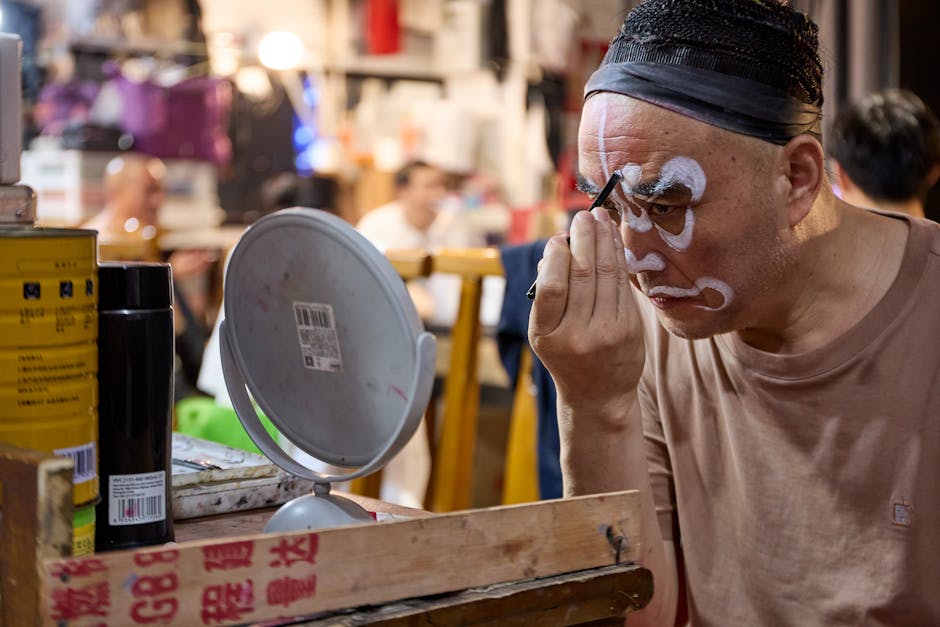Decoding the Overcompensating Show: Understanding the Psychology and Dynamics
Understanding the Overcompensating Show
The “overcompensating show” isn’t a formally recognized psychological term, but it describes a common human behavior: outwardly exhibiting excessive confidence, competence, or strength to mask underlying insecurities or feelings of inadequacy. This can manifest in various ways, from boastful behavior and extravagant displays to controlling tendencies and aggressive posturing. It’s a complex phenomenon with roots in both individual psychology and social dynamics, and understanding its nuances can be key to navigating relationships and self-improvement.
Identifying the Overcompensating Show: Key Signs and Behaviors
Recognizing the overcompensating show isn’t always straightforward. It often involves subtle cues interwoven with genuine traits. However, some key indicators can help identify this pattern of behavior:

- Excessive Bragging and Boasting: Constant self-promotion, often exaggerated or untrue, is a prominent sign. The individual may inflate their accomplishments, skills, or possessions to impress others.
- Controlling Behavior: A need to control situations and people is a common manifestation. This can range from micromanaging to imposing their will on others, often justified with a façade of competence.
- Aggression and Defensiveness: Overcompensators may react defensively or aggressively when challenged, even subtly. This stems from a fear of vulnerability and exposure of their insecurities.
- Materialistic Displays: An excessive focus on material possessions and status symbols is a common way to project an image of success and worth.
- Risk-Taking Behavior: Engaging in risky behaviors, such as reckless driving or impulsive financial decisions, can be an attempt to prove bravery or control.
- Perfectionism: Striving for unrealistic standards can be a way to compensate for feelings of inadequacy. The pursuit of perfection often masks self-doubt.
- Inconsistent Behavior: Their actions may contradict their words, suggesting a disconnect between their projected persona and their inner feelings.
The Psychology Behind the Overcompensating Show
Several psychological factors contribute to the overcompensating show. Often, it’s a defense mechanism stemming from deep-seated insecurities. These insecurities may originate from childhood experiences, traumatic events, or societal pressures. The individual may feel a need to prove their worth to themselves and others to compensate for perceived shortcomings.
Low Self-Esteem: A fundamental aspect is often low self-esteem. The overcompensating behavior becomes a shield against feelings of worthlessness or inadequacy. By projecting an image of superiority, they attempt to counteract their internal self-criticism.
Fear of Failure: The fear of failure can be a powerful motivator. The overcompensating show serves as a preventative measure, aiming to avoid situations where failure could expose their vulnerabilities.
Insecure Attachment Styles: Individuals with insecure attachment styles, particularly avoidant attachment, might exhibit overcompensating behaviors as a way to manage their fear of intimacy and vulnerability.
The Social Dynamics of Overcompensation
The overcompensating show isn’t just an individual phenomenon; it’s shaped by social dynamics. Societal pressures, expectations, and competition can significantly influence the development and expression of these behaviors. The need to fit in, achieve social status, or conform to certain ideals can drive individuals to overcompensate.
Social Comparison: Constant comparison to others, particularly on social media, can fuel the desire to project a superior image. This creates a cycle where individuals strive to outdo others, leading to ever-increasing displays of overcompensation.

Performance Culture: In highly competitive environments, the pressure to perform and succeed can push individuals to overcompensate their abilities and achievements.
Gender Roles: Societal expectations related to gender roles can contribute to overcompensating behaviors. Individuals may feel compelled to conform to idealized masculine or feminine stereotypes, leading to exaggerated displays of strength, dominance, or vulnerability.
Navigating Relationships with Overcompensators
Dealing with individuals who exhibit the overcompensating show can be challenging. It requires patience, understanding, and careful communication. Here are some strategies for navigating these relationships:
- Empathy and Understanding: Recognizing that the behavior stems from underlying insecurities can foster empathy. Try to see the individual’s actions in a broader context.
- Avoid Confrontation: Direct confrontation can be counterproductive. It may trigger defensiveness and reinforce the overcompensating behaviors.
- Gentle Challenges: Subtle challenges to their claims or behaviors can be more effective. Instead of direct criticism, offer alternative perspectives or gently question their assertions.
- Focus on Behavior, Not Personality: When addressing concerns, focus on specific actions rather than labeling the person’s character.
- Set Boundaries: It’s crucial to set clear boundaries to protect your own well-being. Don’t allow the overcompensating behavior to control or manipulate you.
- Seek Support: If the relationship is significantly impacting your mental health, seeking support from friends, family, or a therapist is essential.
Overcoming Overcompensation: Steps Toward Self-Improvement
For individuals who recognize the overcompensating show in themselves, self-improvement requires self-awareness, introspection, and a commitment to change. This journey often involves addressing the underlying insecurities and building self-esteem.

- Self-Reflection: Honest self-reflection is crucial. Identify the triggers and situations that lead to overcompensating behaviors.
- Therapy: Therapy can provide a safe and supportive environment to explore the root causes of insecurities and develop coping mechanisms.
- Mindfulness and Self-Compassion: Practicing mindfulness and self-compassion can help reduce self-criticism and cultivate self-acceptance.
- Challenge Negative Thoughts: Identify and challenge negative thoughts and beliefs that contribute to feelings of inadequacy.
- Build Self-Esteem: Engage in activities that foster self-esteem and a sense of accomplishment, focusing on personal growth and self-acceptance rather than external validation.
- Healthy Relationships: Cultivating healthy relationships built on mutual respect and support can help counter feelings of isolation and inadequacy.
Conclusion: Embracing Authenticity
The overcompensating show is a complex behavior rooted in insecurity and a desire for validation. By understanding its psychology, social dynamics, and implications, we can navigate relationships more effectively and strive for greater self-awareness and authenticity. Whether it’s recognizing the behavior in others or working towards self-improvement, embracing vulnerability and authenticity is a path toward greater well-being and genuine connection.




